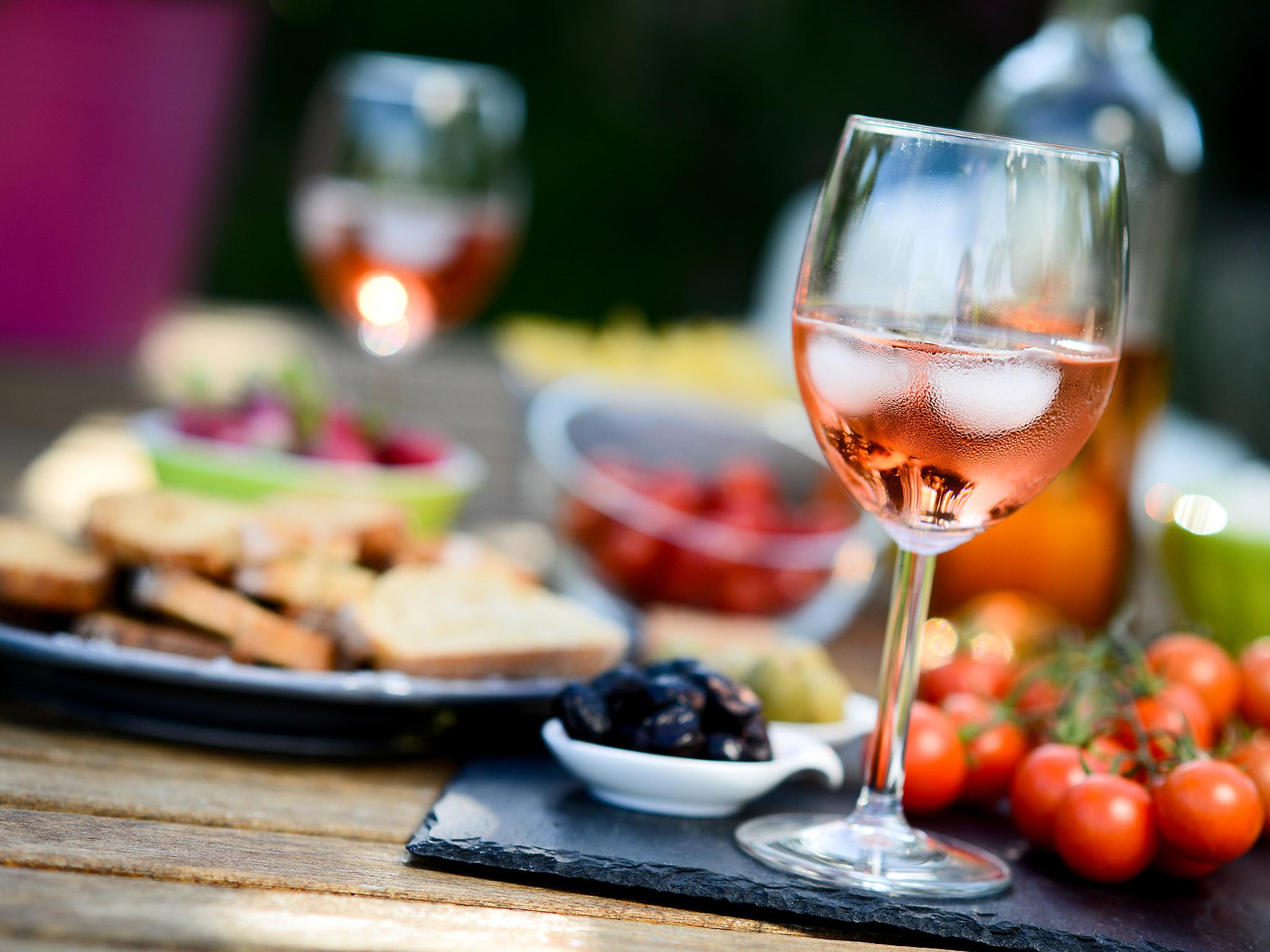Should you ever put ice cubes in wine? Experts reveal the definitive answer
When you can barely pronounce Sauvignon Blanc, surely some frozen water can’t hurt?

Your support helps us to tell the story
From reproductive rights to climate change to Big Tech, The Independent is on the ground when the story is developing. Whether it's investigating the financials of Elon Musk's pro-Trump PAC or producing our latest documentary, 'The A Word', which shines a light on the American women fighting for reproductive rights, we know how important it is to parse out the facts from the messaging.
At such a critical moment in US history, we need reporters on the ground. Your donation allows us to keep sending journalists to speak to both sides of the story.
The Independent is trusted by Americans across the entire political spectrum. And unlike many other quality news outlets, we choose not to lock Americans out of our reporting and analysis with paywalls. We believe quality journalism should be available to everyone, paid for by those who can afford it.
Your support makes all the difference.For something that’s supposed to be enjoyable, drinking wine involves an awful lot of rules. Don’t drink red wine with fish. Make sure you hold the glass by the stem. Never fill your glass to the brim. And, even if you’re about to pass out from heat stroke, don’t even think about plonking a few ice cubes in your wine unless you want to seem horribly gauche. It’s enough to make you reach for a gin and tonic.
But, some wine experts are questioning whether sticking some ice cubes into your Sauvignon Blanc is such a crime after all.
“Wine etiquette is full of stuck-up, toffee nosed twaddle and in my view starts from the wrong perspective, ie with big swiping generalisations and no consideration to what people like,” argues David Moore, the owner of Michelin-starred restaurant Pied-a-Terre in central London tells The Independent.
“If you want ice, have ice. I regularly enjoy an iced up white wine, and buy a good value bottle to do that.”
Even Moët & Chandon and Veuve Clicquot, those purveyors of fancy Champagne, have recently released wines which they encourage drinkers to serve on the rocks.
In fact, as Tom Harrow, the co-founder of Honest Wines explains, there is a historical precedent for icing wine.
“Whilst I wouldn’t recommend diluting your Grand Cru Montrachet with a few cubes there are other circumstances where it shouldn’t be such an issue,” he says.
“We add ice – well, some do – to whisky, and soda to brandy, and the ancient Greeks and Romans insisted on watering down their wine. 20:1 is mentioned in Homer’s Odyssey, which seems excessive; 4:1 was more common, rather like Pimms to ginger beer ratio.”
The sticking point is, however, when a wine becomes too fine to be cooled down with ice. The ice will of course eventually melt and dilute the flavours and aromas of the drink.
“Putting ice cubes in a well made, balanced wine just to cool it down is lazy,” warns Ruth Spivey, wine expert and founder of Wine Car Boot.
The climate you are in is also key when mulling over whether to ice or not to ice, argues Richard Ellison, the founder of Wanderlust Wine. He suggests there’s just no use enduring a lukewarm wine when it’s too hot to think anyway.
“As a passionate wine lover who imports it for a job, even I have been known to add ice to wine in certain scenarios. Late last year in Cambodia on holiday I was served a bottle of room temperature Sauvignon Blanc from New Zealand in a scorching 32 degree heat. They then brought ice. This is one time I didn’t even bother to argue with the concept.”
Harrow chimes: “In baking weather like we’ve recently enjoyed I would happily sacrifice a degree or so alcohol in favour of extra refreshment. In fact I would argue that any white or pink that is 13.5 per cent will probably benefit from a cube or two in hot weather.”
Wine from regions like the Rhone in France, such as the white Chateauneuf, white Cotes du Rhone, can also be a little too powerful for some and could be watered down a little to taste adds Ellison.
If a bottle needs to be chilled sharpish, but is too high quality to water down, Ellison suggests wetting a paper towel, wrapping it around the bottle and putting it in the freezer for 10 to 15 minutes. This make-do freezer jacket will cool the wine quicker. And, if possible, plan a little in advance to avoid relying on faddy gadgets and needlessly fussy methods.
“Most of our lives are cluttered enough and most people don’t need more faddy gadgets, however handy,” says Ellison. “Other more complicated and elaborate methods that seem a bit silly include having brine water with bags of ice poured in. Dissolving the salt in the water lowers the freezing temperature and cools the bottle faster. It’s elaborate but it does work – you can chill wine or champagne down to perfectly cold in less than 10 minutes.”
“But I’d argue why not just add some frozen raspberries or blueberries instead? The wine is just as cold but without it being diluted,” he adds.
So, for anyone grabbing a bottle of supermarket plonk on the way home from work, which let’s be honest is most of us, Spivey’s advice is clear: “If the wine is horrible and you’re unable to change it for something better, a couple of ice cubes could well make it more palatable – the colder the wine the less you can taste.”
Join our commenting forum
Join thought-provoking conversations, follow other Independent readers and see their replies
Comments